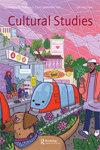Memoryscapes of liberation: activist mnemonic labour in the queer press
IF 1.2
3区 社会学
Q1 ANTHROPOLOGY
引用次数: 0
Abstract
In this article, I will explore the role of memory in the context of homosexual liberation movements. I will do this through the lens of the queer press, which will serve as a doorway for the exploration of activist mnemonic labour. Activists undertake mnemonic labour to craft narratives that weave together historical oppression and resistance with hopes for a better future. These narratives are used to motivate and sustain activists in their present struggles. The queer press helps spread narratives across borders and creates shared memoryscapes for activism. My proposal is to view memoryscapes as schemata that inform activist mnemonic labour. On one hand, memoryscapes offer a shared purpose and direction for activists spread across different countries. On the other hand, they serve as arenas for mediation and comparison, linking distinct histories from diverse social groups and revealing their shared threads. This turns memory into a resource for building alliances across borders, and among different political and social groups. I will adopt this perspective to study two Argentinian homosexual liberation groups from the 1960s-70s: Nuestro Mundo and Frente de Liberación Homosexual (FLH). I will explore activist mnemonic labour on Nuestro Mundo’s bulletins and the FLH’s periodicals: Homosexuales and Somos. I will focus on two main aspects: (1) how activists adapt transnational narratives to the local context, and (2) how Argentinian activists weave narratives that blend historical oppression and resistance with visions of a different future.解放的记忆:酷儿媒体中的激进的助记劳动
在这篇文章中,我将探讨记忆在同性恋解放运动中的作用。我将通过酷儿媒体的镜头来做这件事,这将成为探索激进的助记劳动的门户。活动人士从事记忆性工作,精心编写叙事,将历史上的压迫和反抗与对更美好未来的希望交织在一起。这些叙述被用来激励和支持活动家们目前的斗争。酷儿媒体帮助跨界传播叙事,为激进主义创造共同的记忆。我的建议是将记忆景观视为图式,为激进的助记劳动提供信息。一方面,记忆景观为分布在不同国家的活动人士提供了共同的目标和方向。另一方面,它们作为调解和比较的场所,将不同社会群体的不同历史联系起来,揭示他们的共同线索。这就把记忆变成了跨越国界、在不同政治和社会群体之间建立联盟的资源。我将采用这一视角来研究20世纪60年代至70年代的两个阿根廷同性恋解放组织:Nuestro Mundo和Frente de Liberación homosexual (FLH)。我将在Nuestro Mundo的公报和FLH的期刊:同性恋和Somos上探索活动家的记忆劳动。我将集中讨论两个主要方面:(1)活动家如何将跨国叙事适应当地背景,以及(2)阿根廷活动家如何编织叙事,将历史压迫和抵抗与不同未来的愿景融合在一起。
本文章由计算机程序翻译,如有差异,请以英文原文为准。
求助全文
约1分钟内获得全文
求助全文
来源期刊

Cultural Studies
Multiple-
CiteScore
3.50
自引率
6.70%
发文量
0
期刊介绍:
Cultural Studies is an international journal which explores the relation between cultural practices, everyday life, material, economic, political, geographical and historical contexts. It fosters more open analytic, critical and political conversations by encouraging people to push the dialogue into fresh, uncharted territory. It also aims to intervene in the processes by which the existing techniques, institutions and structures of power are reproduced, resisted and transformed. Cultural Studies understands the term "culture" inclusively rather than exclusively, and publishes essays which encourage significant intellectual and political experimentation, intervention and dialogue.
 求助内容:
求助内容: 应助结果提醒方式:
应助结果提醒方式:


